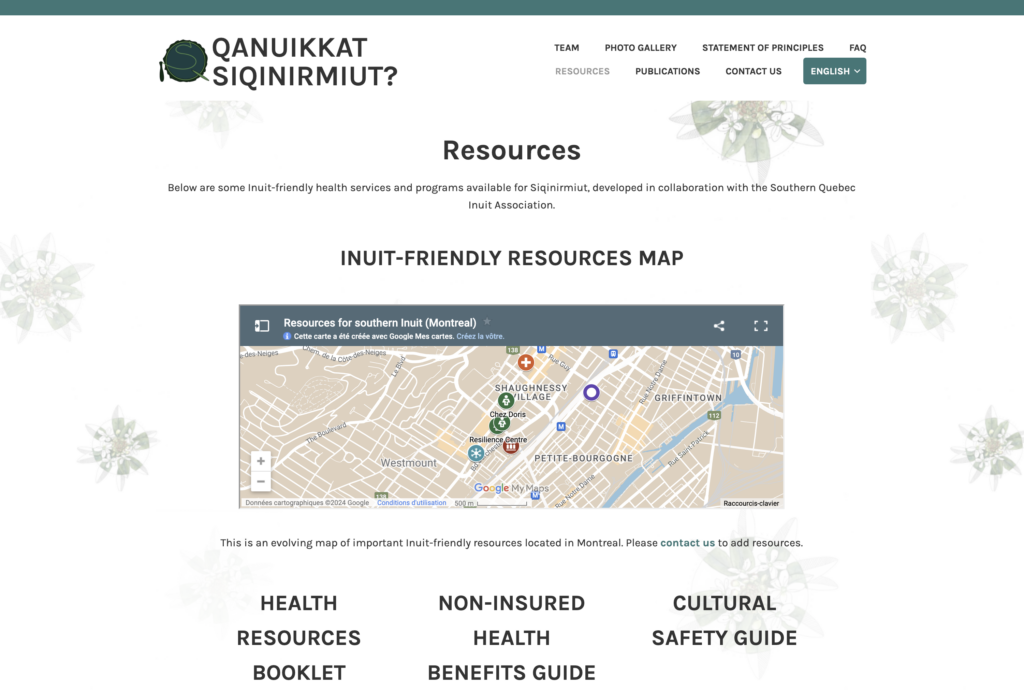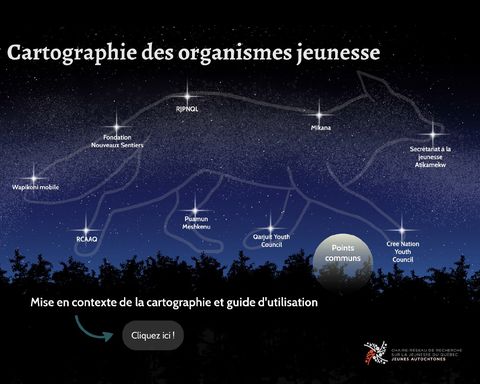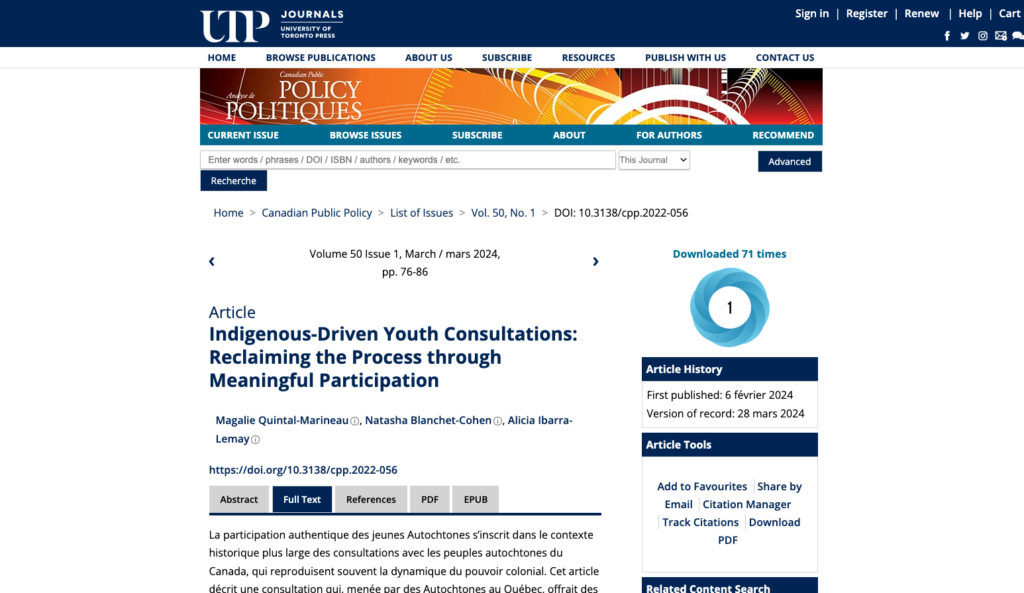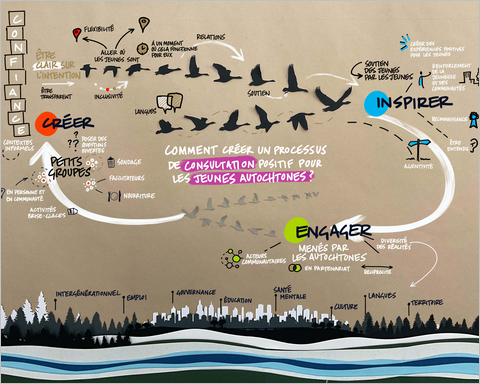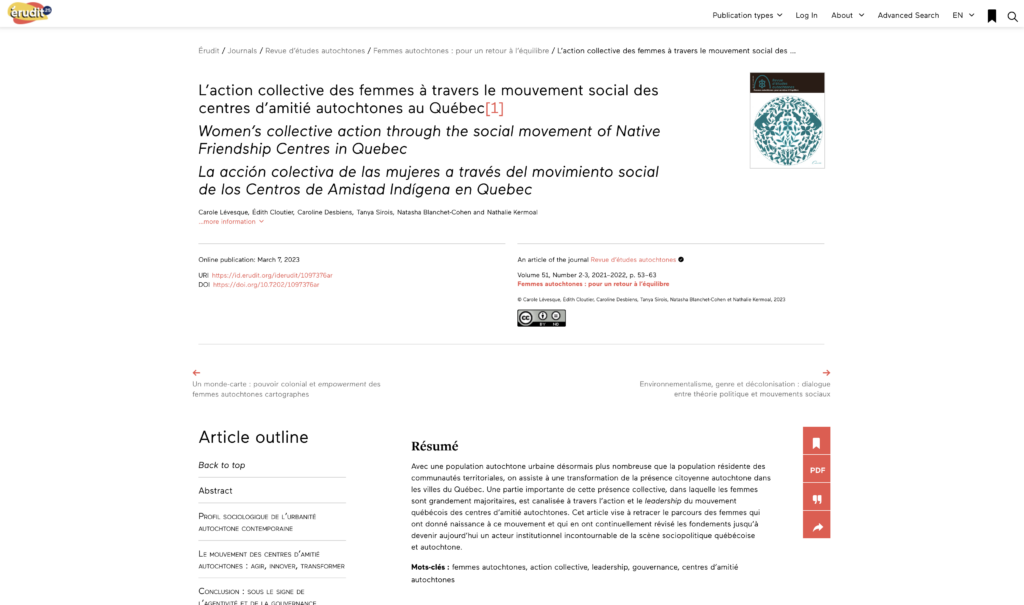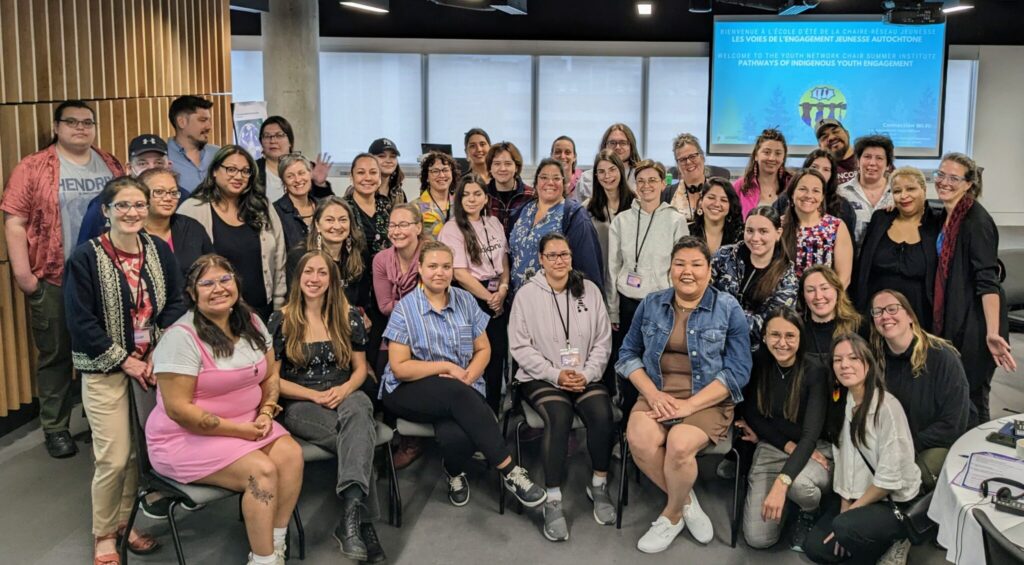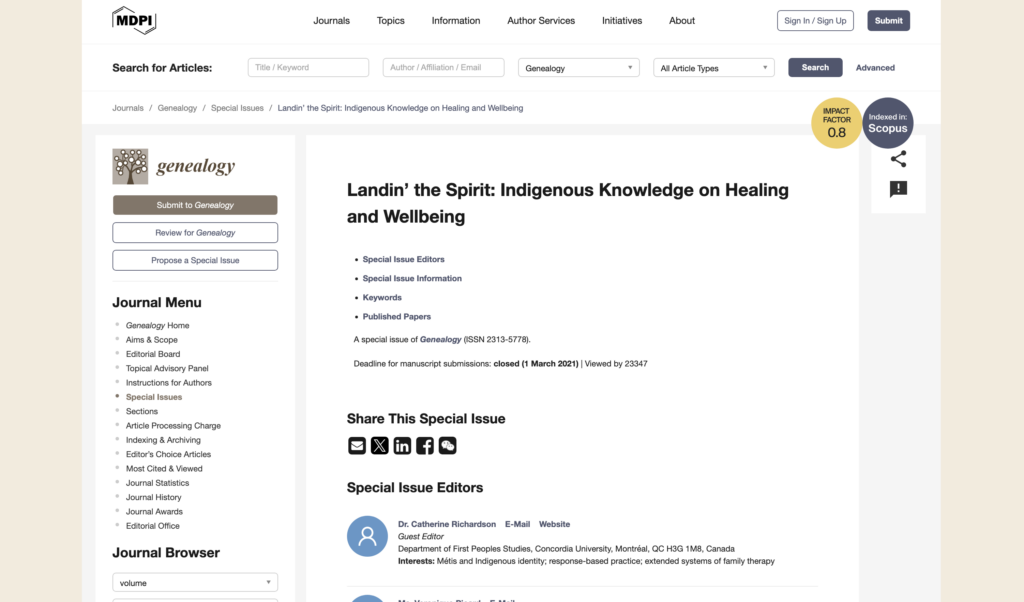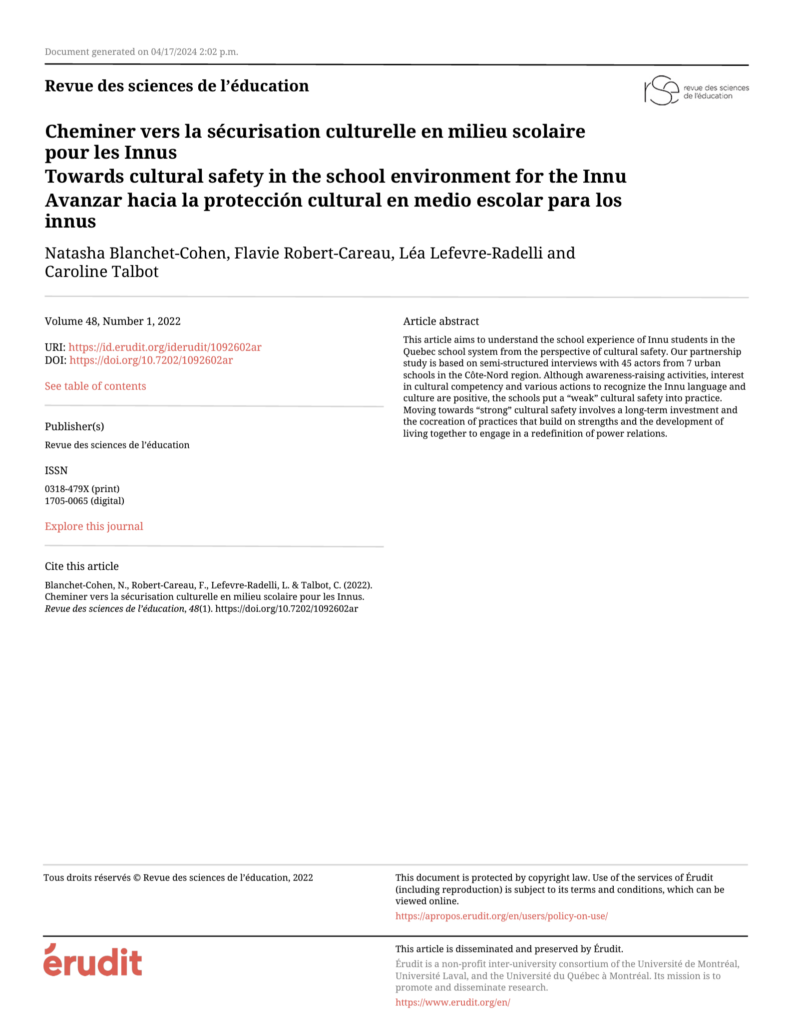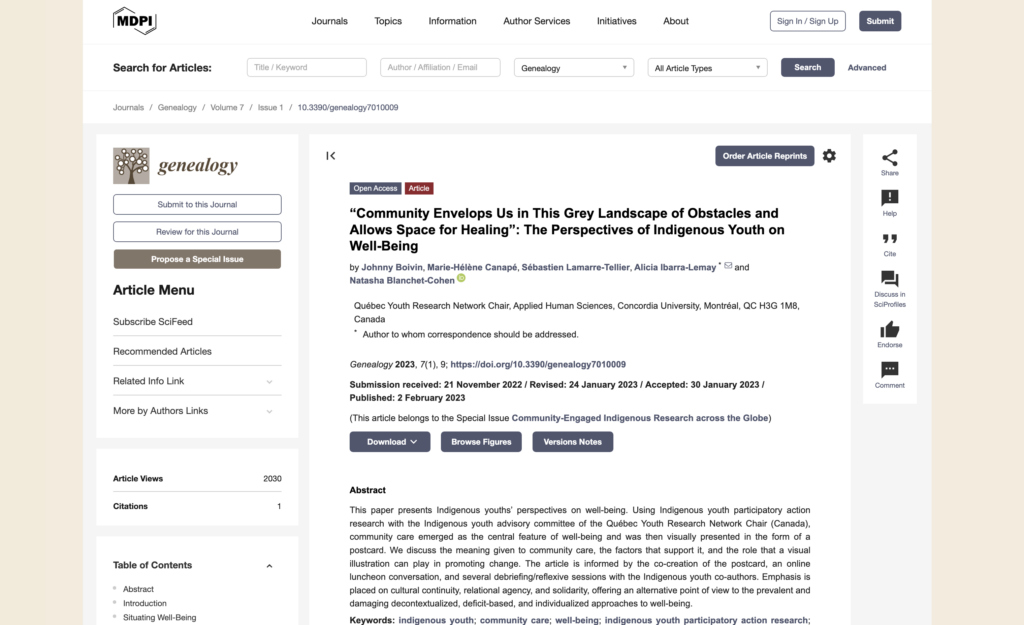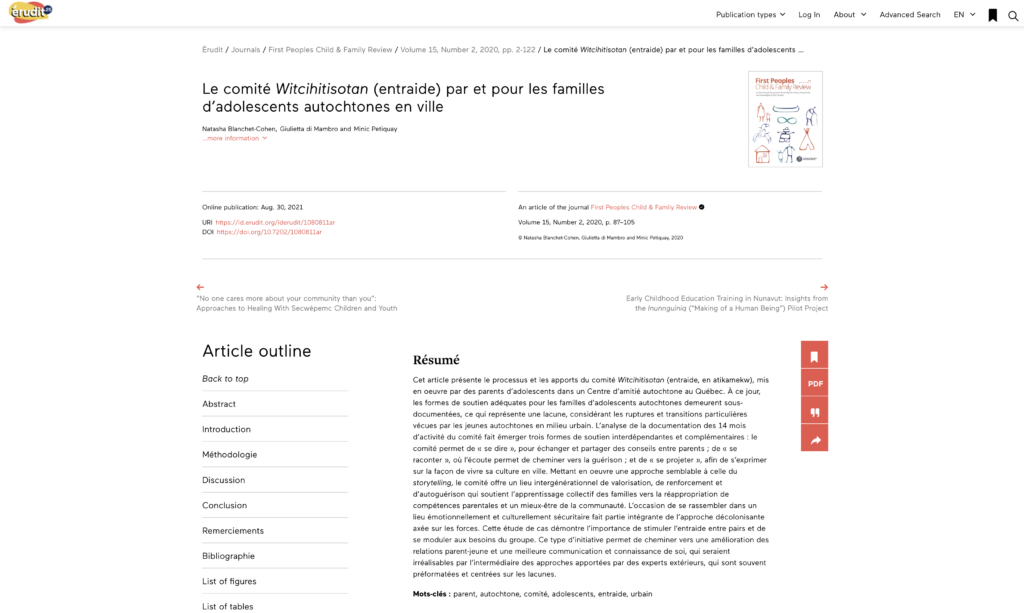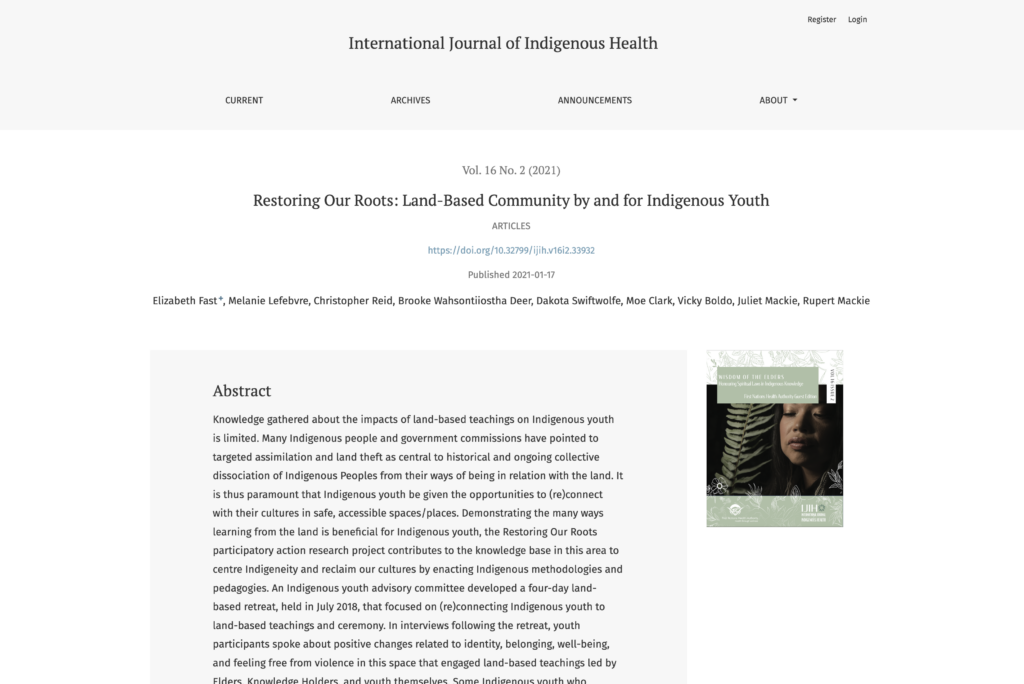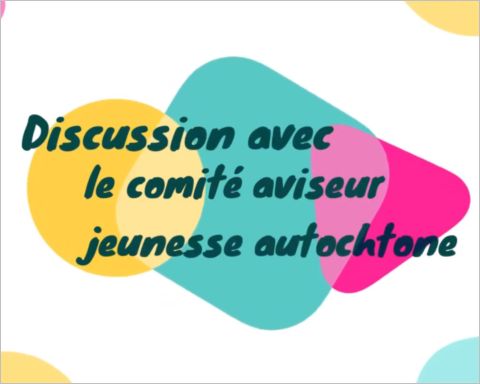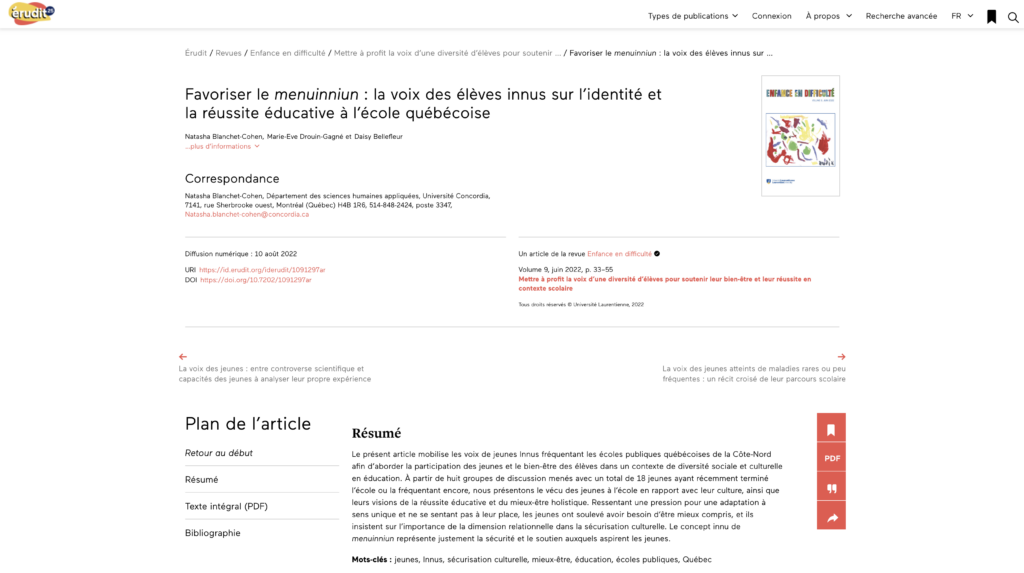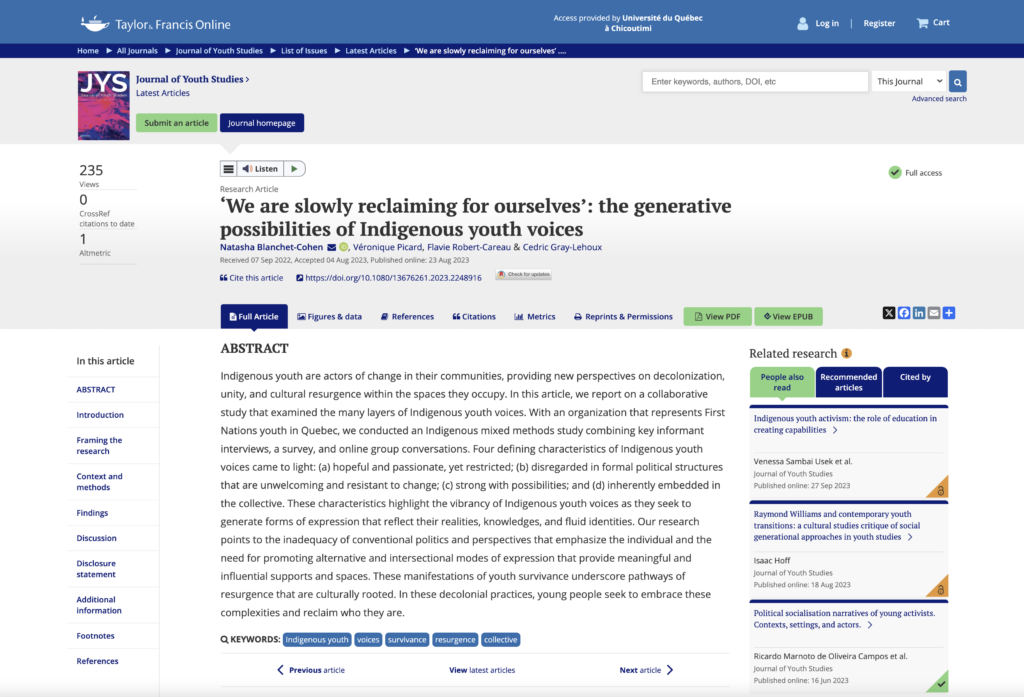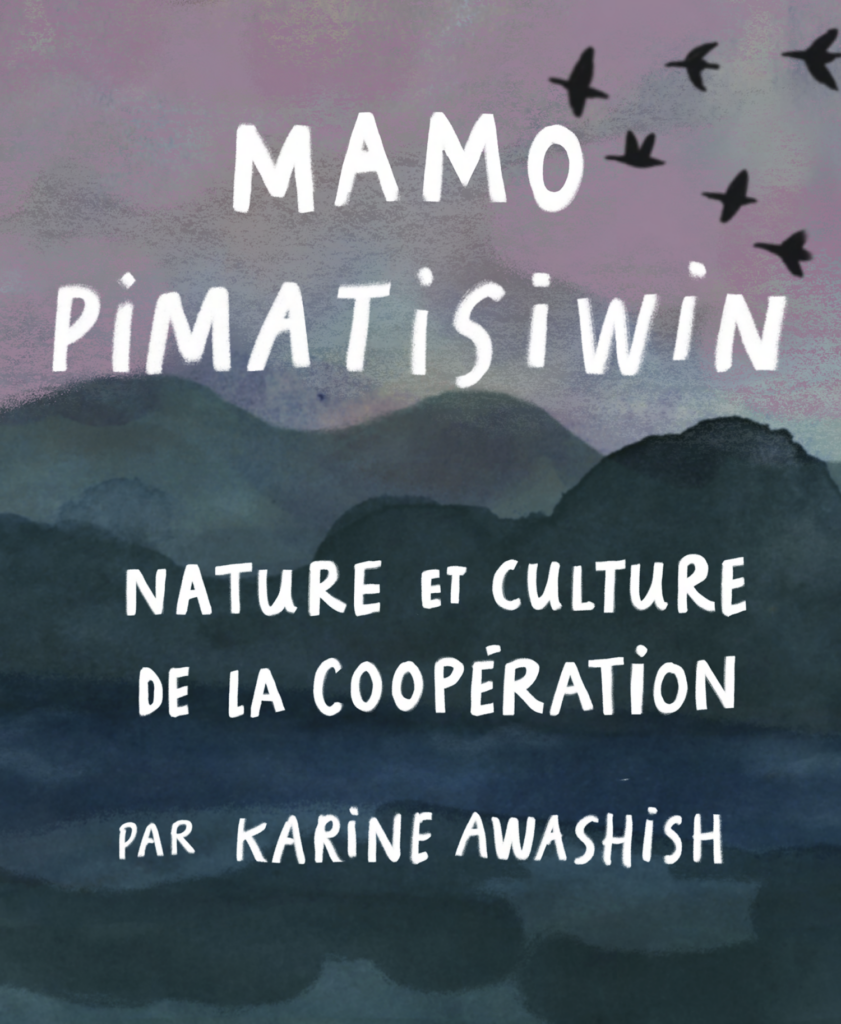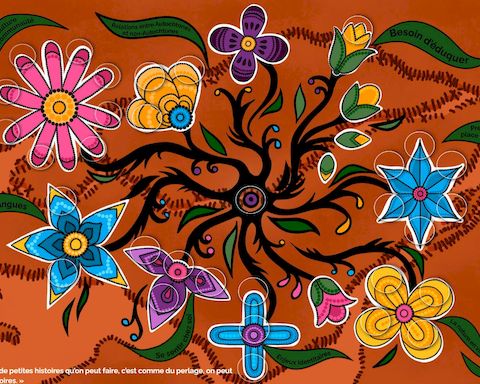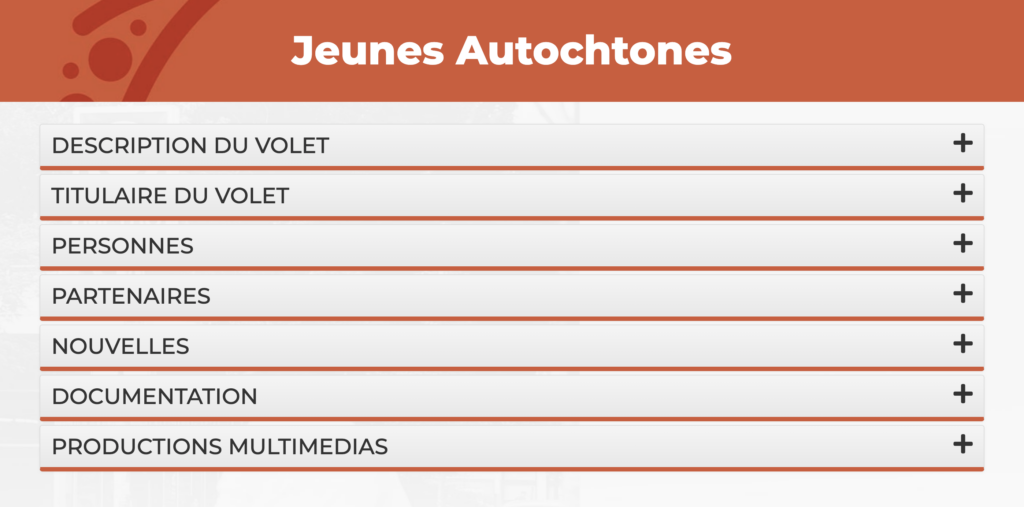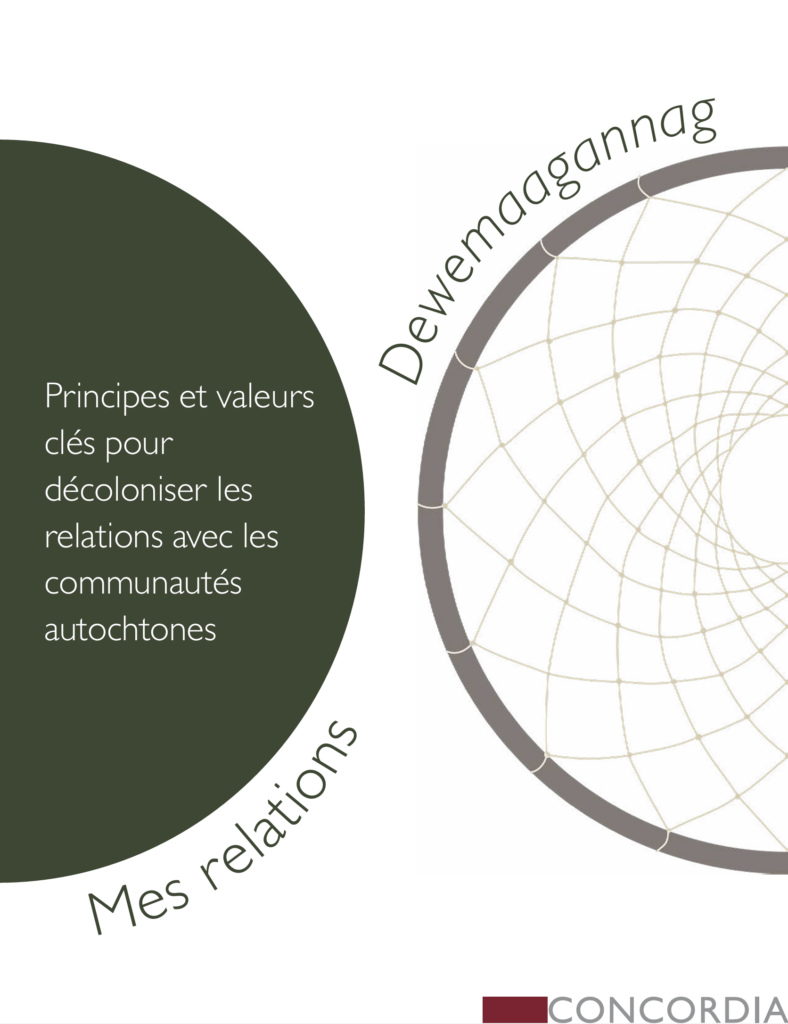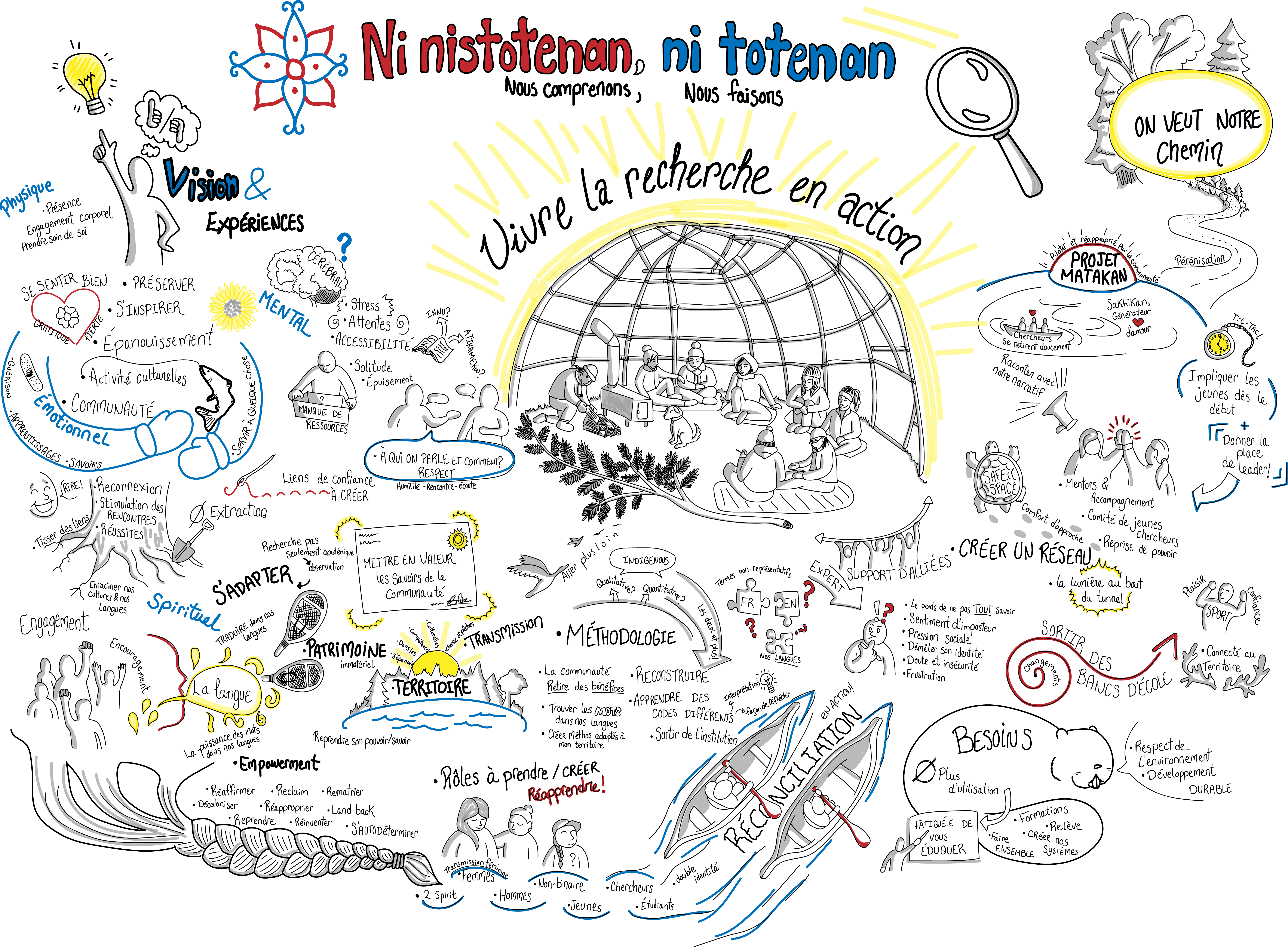Notice bibliographique
Rahm, J. (2021). Connecting with people, places, and histories through archaeology: Youths’ development of sustain’abilities’. Dans M. Achiam, J. Dillon et M. Glackin (dir.), Addressing Wicked Problems through Science Education: The Role of Out-of-School Experiences (p. 189-213). Springer.
Résumé
Field schools in archaeology are not simply a means to form future archaeologists but a tool to re-engage children and youth with people, places and history in ways supportive of the development of meaningful sustain’abilities’ constitutive of critical sustainability literacy. The latter is essential to respond to the kinds of wicked problems this book addresses and the kind of future practice of civic science it calls for. In this chapter, I describe two projects I have been involved in. The first entailed an innovative collaborative project between a formal and informal educational setting with a visiting archaeologist, and ending with a mock excavation, organized in collaboration with a local history museum. The second project consisted of a community archaeology project in Nunavik, Northern Quebec, where Inuit youth participated in an excavation at the elbows of community members and archaeologists. The two case studies are essentially tools to unpack monologic visions of epistemology and practice and to bring into the conversation issues of privilege and power. The two cases also find themselves at the intersection of formal and informal science education and offer new narratives of what a socially just science education that is empowering and transformative may imply.
Hyperlien
https://doi.org/10.1007/978-3-030-74266-9_10Publication du membre
Jrène RahmAppartenance aux volets










